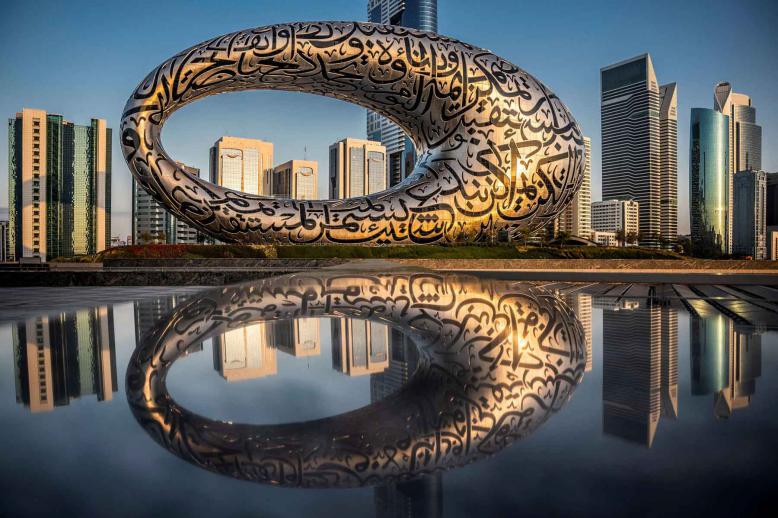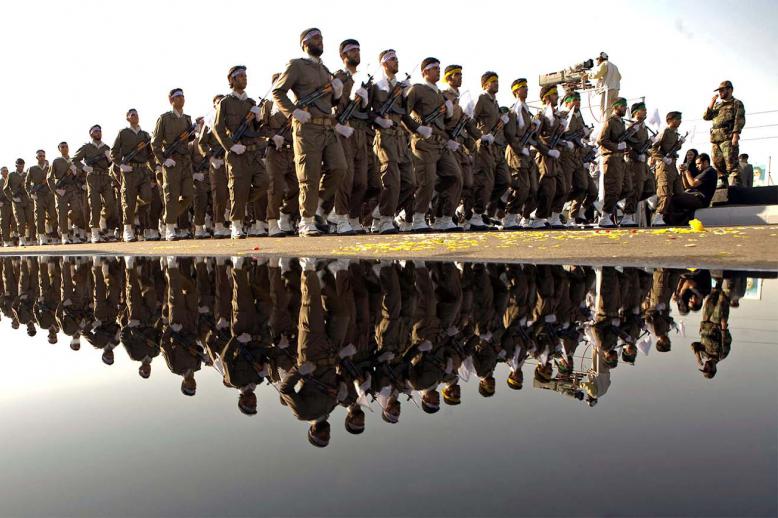Decision to reopen economy sparks fears of wider contagion in Egypt
CAIRO--Egypt’s decision to make its factories and production facilities fully operational has sparked fears of a COVID-19 outbreak in the populous country.
Egyptian President Abdel Fattah al-Sisi encouraged the nation’s factories to resume normal activity due to fears that a prolonged suspension of economic activities would exacerbate the country’s economic woes.
“The damage from the suspension of the international economy can be far more dangerous than the damage from infection,” Sisi said on April 7. “Some countries talk about striking a balance between fighting the disease and keeping the economy going.”
Sisi gave the go ahead for production facilities to resume operations as the country burned through its financial reserves in efforts to curb the spread of COVID-19 and meet the needs of its population.
Egypt reacted to the emergence of COVID-19 cases as of the end of February by closing down schools, shuttering mosques and churches, suspending universities, ordering the closure of tens of thousands of non-essential outlets and restricting restaurants’ work to delivery services.
Egypt imposed a nationwide night-time curfew to try and encourage the public to practise social distancing measures. The government also asked almost half of the nation’s more than 5 million civil servants to stay at home, especially women.
But the measures are proving very costly for the country’s struggling economy, raising questions about whether Egypt can afford to suspend production.
Egypt depleted $5.4 billion in one month, which reduced foreign currency reserves at the Central Bank to $40.1 billion at the end of March from $45.5 billion at the end of February.
“No country, anywhere, can tolerate an extended suspension of production,” said independent economist Fakhri al-Fiqi. “Egypt suffers huge financial pressures, especially in the light of the paralysis of the main sources of income, such as the tourism sector and the Suez Canal.”
Egyptian Prime Minister Mustafa Madbouly reiterated the same message during a visit to an auto factory on the outskirts of the Egyptian capital Cairo April 14.
State institutions, he said, have to work with full force while making every effort to protect workers.
“The growth of the economy must keep going,” Madbouly said. “We have to ensure the continuity and the sustainability of this growth.”
Sisi asked army factories that produce face masks to distribute the masks to workers and members of the public for free.
On April 9, he yelled at engineers supervising the construction of a bypass in eastern Cairo for allowing workers to work without face masks.
However, specialists warn that allowing the nation’s production facilities to resume normal operations is risky.
Egypt has reported more than 2,500 COVID-19 infections and 183 deaths so far. The number of daily infections keeps rising, reaching 160 on April 14, the highest since the virus first hit.
Heath authorities test thousands of people, encourage social distancing and work hard to treat patients and reduce fatalities.
“Fears from a rise in the number of infections are credible,” said leading immunologist Abdel Hadi Mesbah. “Like any country, Egypt cannot tolerate the ramifications of an outbreak.”
Nevertheless, the disruption of international supply chains gives Egypt a better chance to send products to new markets, drawing in needed foreign currency and stimulating local industries and production lines.
The need to rescue the national economy and drive growth is a big priority for the country, which is expecting an economic slowdown in the coming months and years.
On April 14, Planning Minister Hala al-Saeed said the growth of the economy in the fiscal year 2020/2021, which begins in July, would depend on how long the COVID-19 crisis lasts.
Sisi’s administration, meanwhile, seems to be under pressure from the business community to refrain from enacting severe restrictions, such as a full lockdown.
Some employers have laid off workers and others have threatened to suspend employers’ salaries if authorities decide to shut down the country.
Sisi appealed to the private sector on April 7 not to sack labourers.
The private sector employs over 80% of Egypt’s workforce of 29 million.
“I only ask you to keep your labour, for God’s sake and for the sake of your country,” Sisi said, addressing the private sector.
Amr Emam is a Cairo-based journalist. He has contributed to the New York Times, San Francisco Chronicle and the UN news site IRIN.
This article was originally published in The Arab Weekly.







